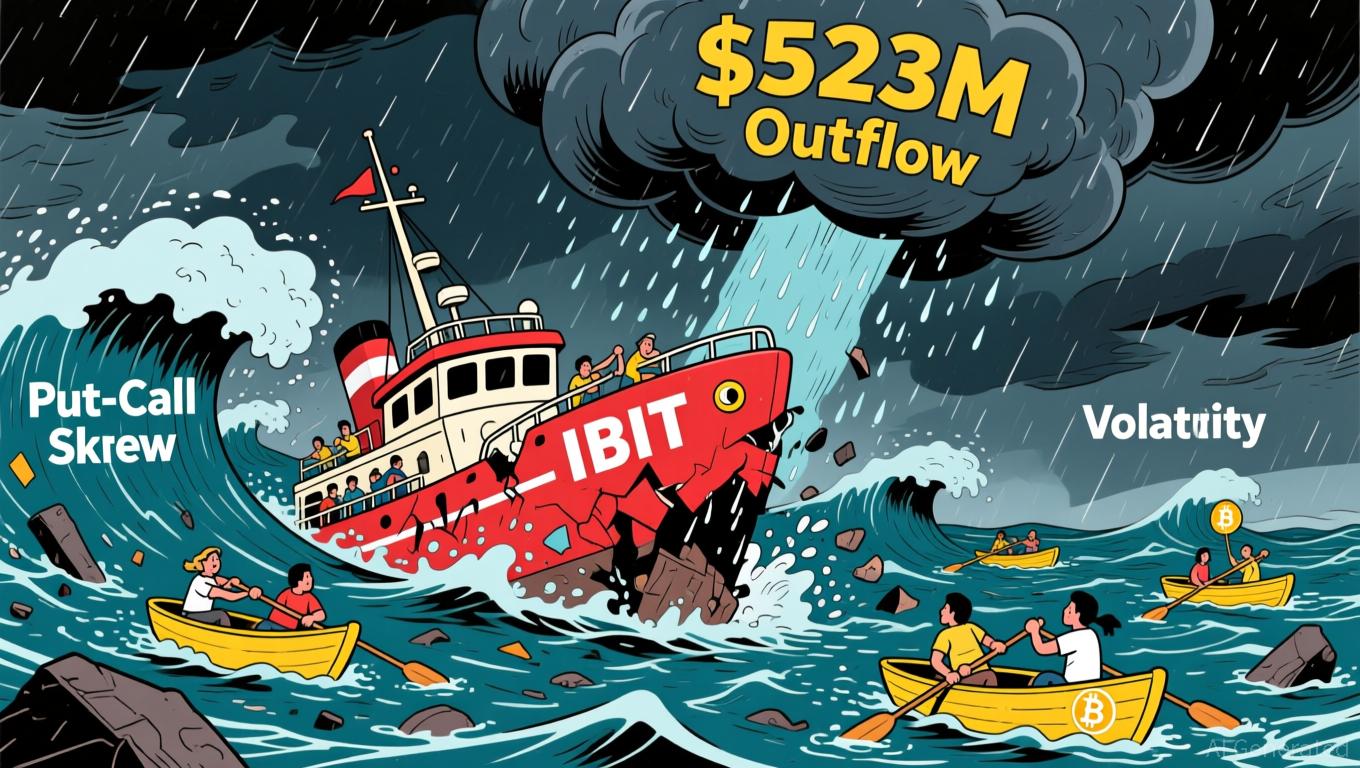CFTC’s Expanded Crypto Responsibilities Challenge Regulatory Preparedness and Cross-Party Cooperation
- Senate Agriculture Committee confirmed Trump's CFTC nominee Michael Selig along party lines, advancing his nomination for final Senate approval. - Selig, an SEC crypto advisor, would expand CFTC's oversight of crypto spot markets under the CLARITY Act, positioning it as a key digital asset regulator. - Democrats raised concerns about CFTC's limited resources (543 staff vs. SEC's 4,200) and potential single-party control after current chair's expected resignation. - Selig emphasized "clear rules" for cryp
On Thursday, lawmakers advanced President Donald Trump’s pick, Michael Selig, to head the Commodity Futures Trading Commission (CFTC), moving his nomination to the full Senate for a final decision. The Senate Agriculture Committee approved Selig in a narrow 12–11 vote along party lines after a heated hearing where members questioned the agency’s preparedness for overseeing the fast-changing crypto sector
Selig, who currently serves as chief counsel for the SEC’s crypto task force and as a senior advisor to SEC Chair Paul Atkins, has played a central role in shaping Trump’s pro-crypto policies. If confirmed, he would strengthen the CFTC’s authority over crypto spot markets under the CLARITY Act—a bipartisan measure passed by the House in July that classifies cryptocurrencies as commodities. The bill, now before the Senate, would also broaden the CFTC’s reach to include prediction markets such as Kalshi and Crypto.com, both of which have faced legal challenges from state gambling authorities
During the hearing, Democrats voiced concerns about the CFTC’s leadership and resources. The agency currently has only one commissioner, acting Chair Caroline Pham, who is expected to step down if Selig is confirmed. With four commissioner seats still vacant,
Selig is set to succeed Brian Quintenz, a former CFTC commissioner whose nomination was withdrawn following criticism from notable crypto advocates, including the Winklevoss twins. Selig’s previous work at the SEC and his push for aligning crypto regulations between agencies have made him a pivotal figure in inter-agency cooperation

The CFTC’s move into crypto oversight has attracted both industry backing and regulatory attention. Selig, who has connections to companies like eToro and Paradigm,
The outcome of Selig’s confirmation remains unclear. While there is bipartisan agreement on expanding the CFTC’s role, Democrats are expected to closely examine the agency’s independence and funding during the Senate’s final vote. Selig’s views on decentralization and prediction markets, including platforms like Kalshi and Crypto.com, may also influence the discussion
Disclaimer: The content of this article solely reflects the author's opinion and does not represent the platform in any capacity. This article is not intended to serve as a reference for making investment decisions.
You may also like
Stellar News Today: Established Market Prefers Altcoins with Practical Use Cases Rather Than Pure Speculation
- MoonBull (MOONBULL) raised $600,000 in funding, highlighting growing institutional interest in utility-driven altcoins with DeFi infrastructure and staking rewards. - Crypto.com's CRO token maintains stability through expanded merchant partnerships and AI-driven tools, positioning it as a "safe haven" amid market volatility. - Stellar's XLM sees renewed adoption via cross-border payment partnerships, with 20% higher transaction volumes reflecting demand for low-cost solutions in emerging markets. - Marke

Hong Kong Steps Up Global Stablecoin Oversight, Focuses on Competition with Tokyo
- Hong Kong regulators impose strict rules on stablecoin issuers, requiring fiat-collateralized tokens and a 25M HKD capital requirement. - Aligning with global trends, the rules aim to curb risks from algorithmic stablecoins but raise concerns about Hong Kong's competitiveness against rivals like Japan. - Japan's pro-crypto policies and incentives attract firms, while global players like Deutsche Börse integrate fiat-backed stablecoins into financial systems. - Hong Kong's framework mandates reserves and

Bitcoin News Update: Japan's Bond Turmoil Triggers Worldwide Crypto Sell-Off Amid Yen Carry Trade Reversal
- Japan's $135.4B stimulus package triggered a 3.41% surge in 30-year bond yields, destabilizing the $20T yen carry trade and sparking global crypto/stock selloffs. - Rising yields threaten Japan's 230% GDP debt load with higher servicing costs, creating a "debt death spiral" risk as BOJ hesitates to tighten policy. - Forced deleveraging by financial institutions intensified Bitcoin's 26% drop, with Ethereum/XRP/Solana also falling 3-5.6% amid margin calls and capital repatriation. - Upcoming 40-year bond

Bitcoin News Today: Bitcoin ETFs See $523M Outflow as Investors Weigh Fear Against Long-Term Strategies
- BlackRock's IBIT ETF recorded a $1.26B net outflow in Nov 2025, its largest redemption since 2024 launch. - Bitcoin price fell 16% to $52, triggering $2.59B outflows across 11 spot ETFs as bearish options demand surged. - Put-call skew hit 3.1% (7-month high), reflecting heightened pessimism and capitulation pressures in Bitcoin's price action. - Gold ETFs gained $289M as investors sought safe havens, contrasting with $1B inflows to tech/healthcare sector funds. - Year-to-date Bitcoin ETF inflows ($27.4B
